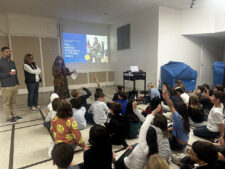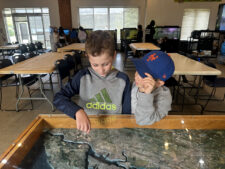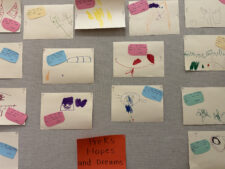Step into any classroom at Ethical Culture, and you’ll find vibrant stories being read aloud, discussed in small groups, or carefully written by our students. English and language arts education at our School is dynamic, joyful, and designed to meet each young student where they are in their literacy journey. From playful read-alouds in Pre-K classrooms to more complex annotation and analysis in 4th and 5th Grade, our teachers and literacy specialists nurture skilled, creative, and thoughtful readers and writers.
Hands-On Approach to Literacy Learning
The journey begins in Pre-K and Kindergarten, where teachers immerse students in rich language experiences. Read-alouds, songs, rhyming games, and even “fishing for letters of the alphabet” activities begin to develop phonemic awareness and listening skills. This play-based approach not only develops key foundational early literacy skills but also inspires a love for language in young students as they become burgeoning readers.
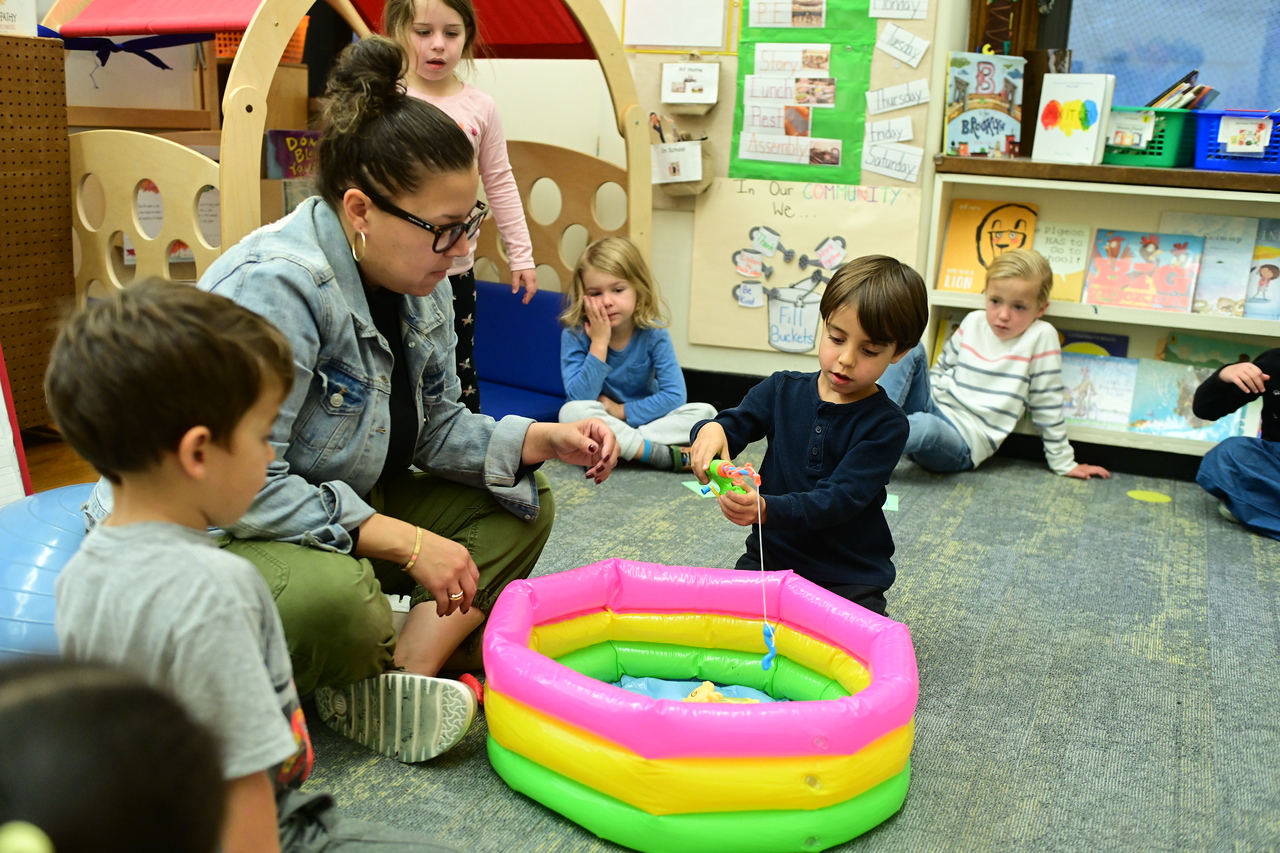
As students grow, so does the structure of their literacy learning. From 1st through 3rd Grade, classroom instruction becomes more targeted and responsive. Teachers observe students carefully, forming small, flexible reading groups that shift throughout the year as students progress. In addition to key skills such as word recognition, pronunciation, and spelling, these groups help students learn at their own pace, supported by teachers who know how to challenge and encourage them equally.
The Ethical Culture Library team acts as a constant companion to this classroom work. Library Coordinator Jennifer Still explains, “The EC Library program promotes free choice for students and encourages a love for reading and stories. We carry materials at a wide variety of levels and in several formats, including audiobooks, to support readers at all stages.” Programs like the Caldecott Club introduce Kindergarten–2nd Grade students to award-winning illustrations and invite families into the literacy experience, fostering a vibrant community of readers and a love for reading that extends from home to school and everywhere in between.
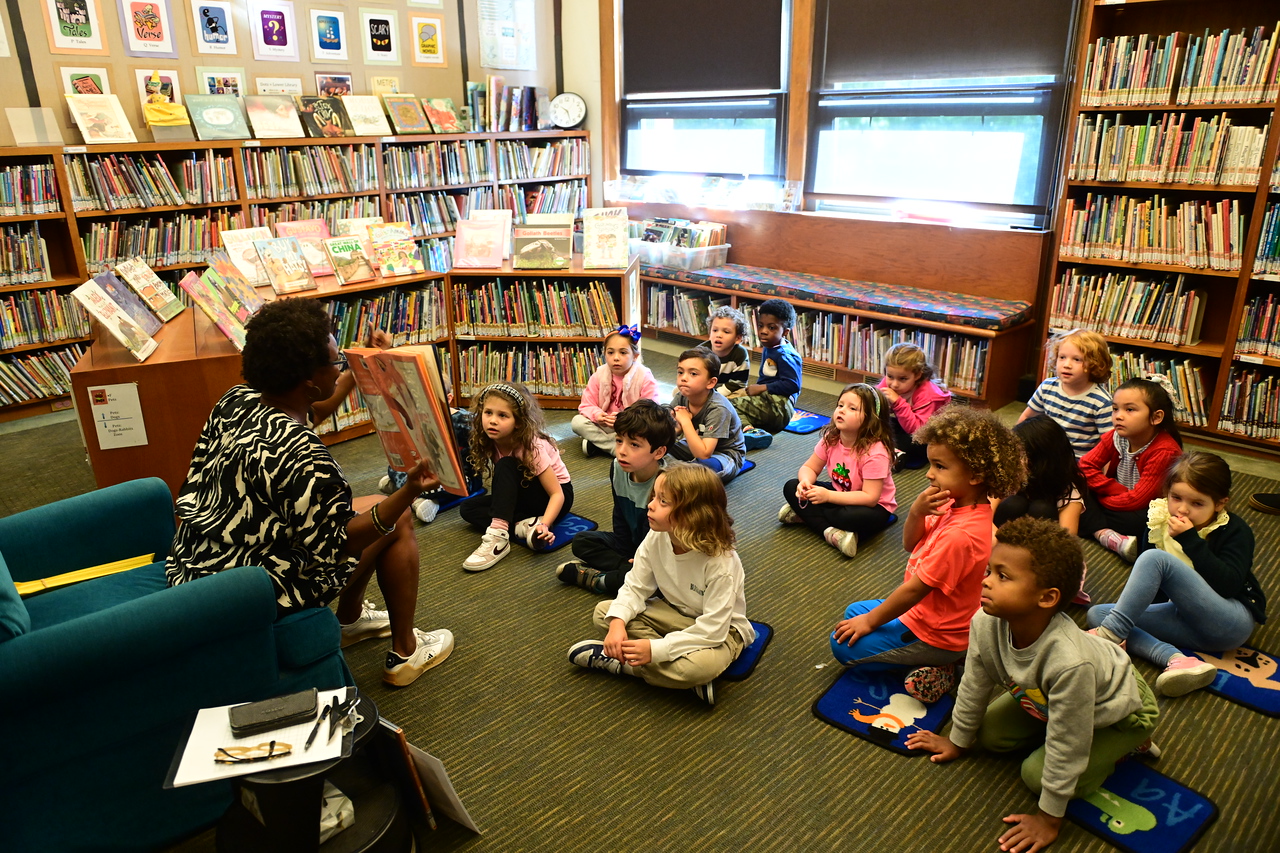
By the time students reach 3rd and 4th Grade, they are introduced to one of the most transformative elements of Ethical Culture’s literacy program: Book Clubs. These in-class reading groups meet daily, providing students with the opportunity to explore literature alongside their peers. Literacy Specialist Eliana Rivera shares, “Book clubs are a great way to grow comprehension skills as well as develop a community of readers. Reading alone is great, but when you share your ideas and both build up new theories plus take on new perspectives, there is so much happening in addition to reading itself.”
In 5th Grade, the focus expands to include more advanced literary analysis and writing workshops. Students begin reading shared class novels and crafting complex narratives as they prepare to enter middle school. 5th Grade Literacy Specialist Karen Rose explains, “In our narrative writing unit, we support advanced writers by providing more sophisticated mentor texts — typically published stories from picture books — and encourage students to apply complex writing strategies.” These experiences are supported by structured assessments and opportunities for extension, such as revising earlier stories with newly learned skills.
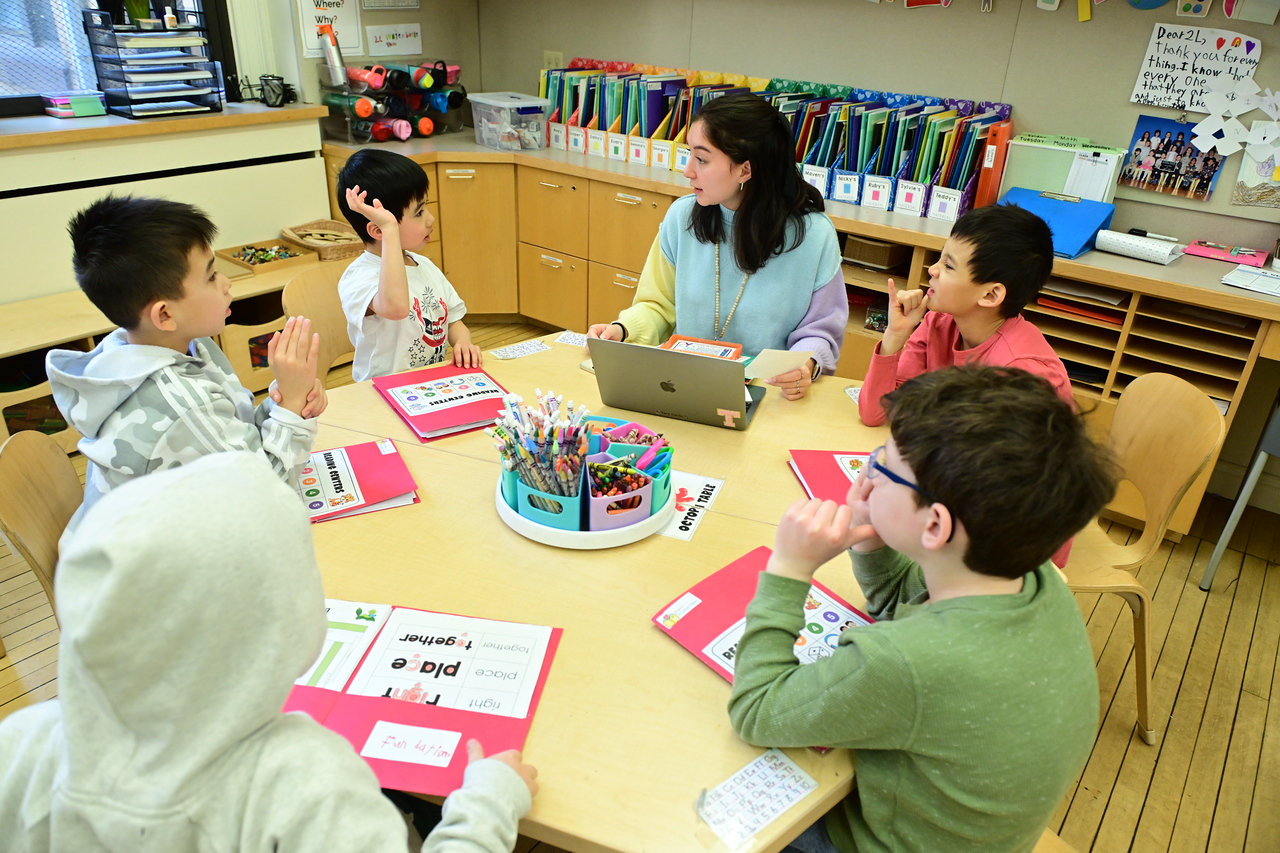
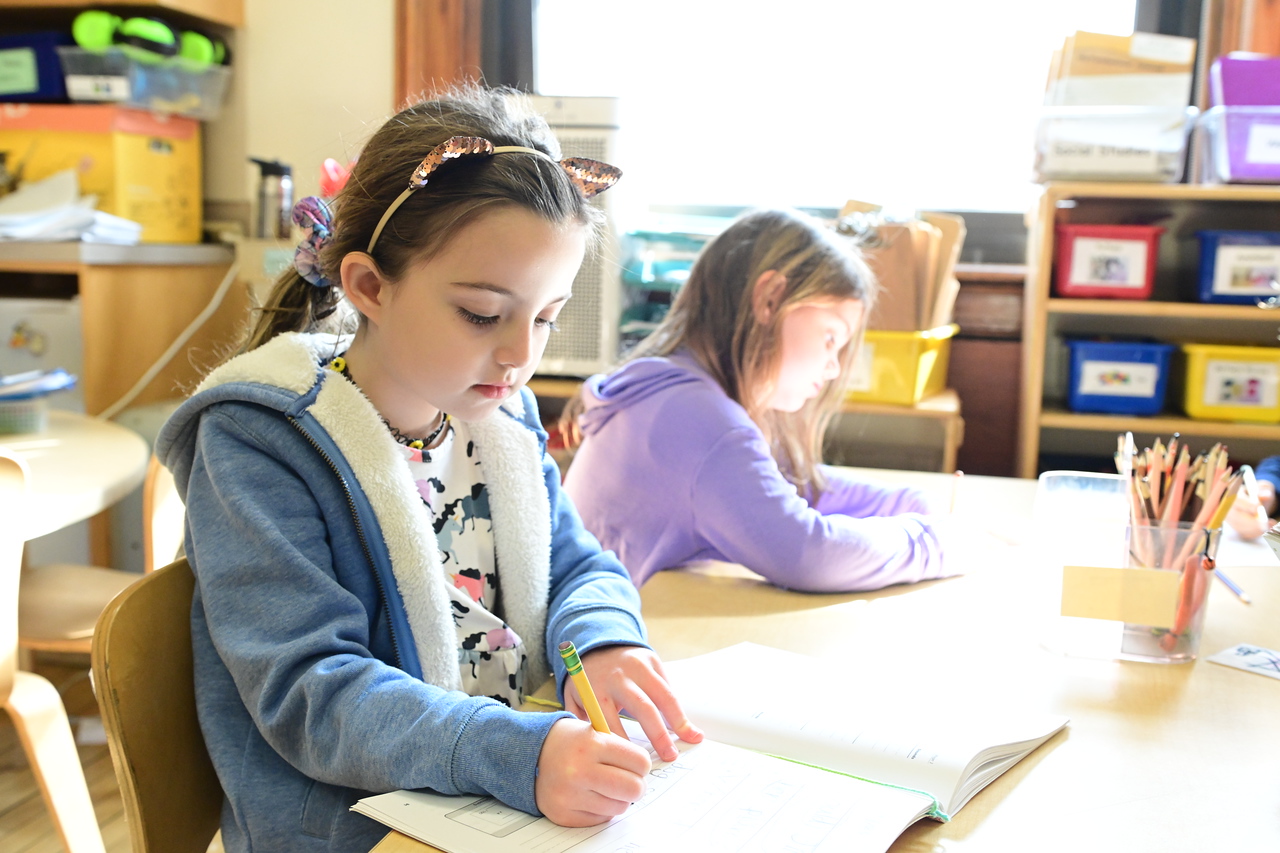
What ties the entire literacy curriculum together is its responsive nature. Individualized support is built into every level of our students’ literacy journeys, understanding that learning how to read and write is not a one-size-fits-all formula. We structure lessons to support growth and embed opportunities for meaningful challenges,” says Rose. Students are continuously assessed and reassessed to ensure that they are being supported when needed and challenged once they’ve reached their ceiling.
We structure lessons to support growth and embed opportunities for meaningful challenges.
At its core, the literacy curriculum at Ethical Culture strikes a balance between rigor and joy. Our teachers and specialists work diligently to recommend books that not only challenge them but also spark their interests. Advanced readers are challenged with differentiated texts that introduce them to rich vocabulary, figurative language, and textual analysis. In writing lessons and assignments, they’re encouraged to use literary devices modeled in texts that they read in their own work. The careful attention to both skill development and voice helps every student, regardless of level, become a stronger reader, writer, and communicator.
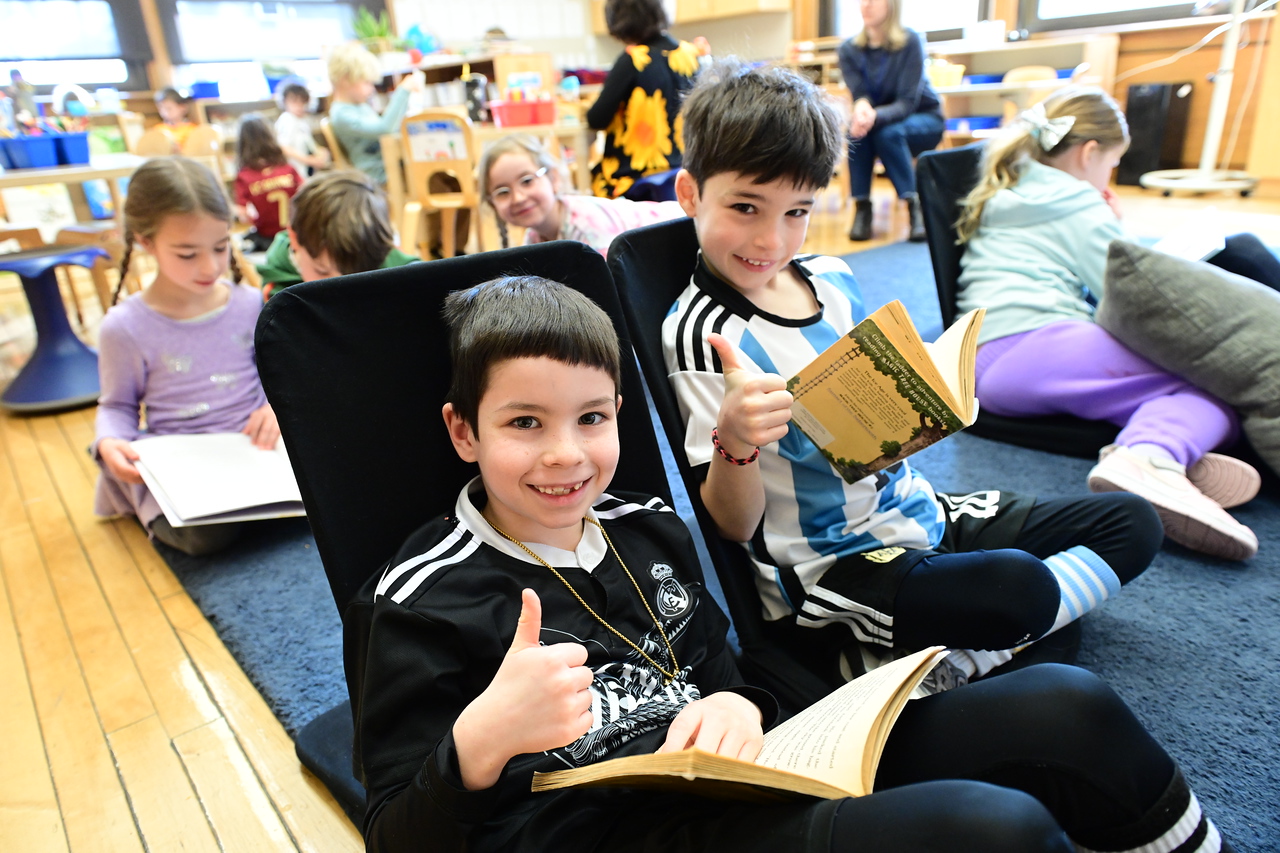
By meeting students where they are and providing them with the tools and time they need to engage meaningfully with language, Ethical Culture’s literacy program is built with purpose: to help students grow into capable, curious, and confident readers and writers. It’s a process shaped by attention to individual needs, a respect for each child’s voice, and a genuine love for stories. “When students feel invested in what they’re reading and writing,” says Rose, “they’re more likely to embrace the hard work that leads to deeper learning.”

